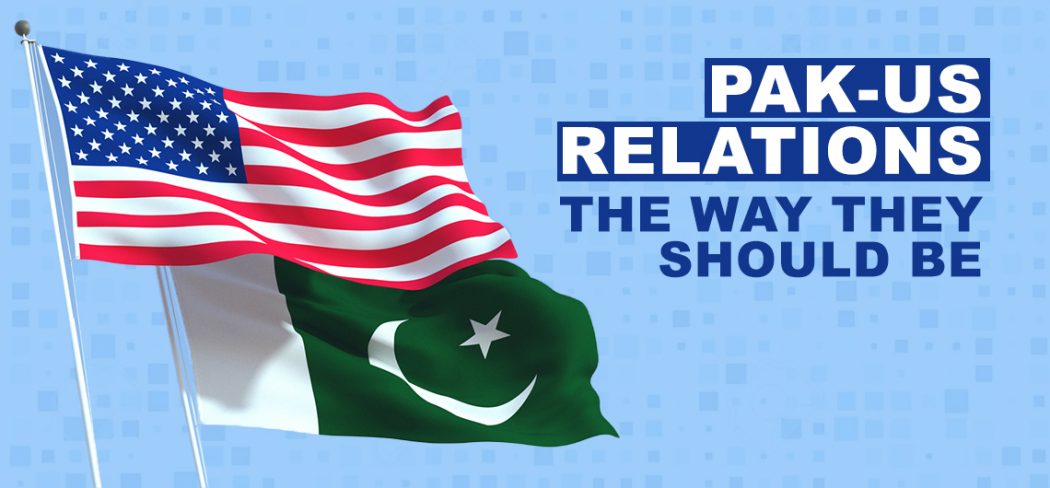In the past, the interests of the United States and Pakistan have seldom coincided for an extended period and have differed more than once. The connection was built on an ad hoc basis from the start and is still mostly transactional in nature. When the utility of the connection ends, Pakistan has always been a partner. Both parties are compelled to engage in the conversation. Both governments have frequently pursued diverging interest paths, damaging one another’s interests at the regional and global levels.
The necessity to re-evaluate the partnership has once more arisen in light of the US exit from Afghanistan in August 2021. In response to inquiries from Congress about the Afghan war, US Secretary of State Antony Blinken was forced to reassure them regarding Pakistan by saying, “This is one of the things that we are going to be looking at in the days and weeks ahead—the role that Pakistan has played over the last 20 years, as well as the role we would want to see it play in the coming years and what it will take for it to do that.”
The state of Afghanistan has influenced the relationship since 2001. With Afghanistan complicating matters further, Pakistan-US ties are neither simple to grasp nor simple to convey. The partnership is described as an “uneasy marriage of odd pair of modern international relations.” The future is primarily bleak. Pakistan has responded by trying to attract a superpower, and do its bidding, while also defending its essential interests because the US is seen as a fickle ally in that country.
As David Hale, a Wilson Center diplomat and ambassador to Pakistan from 2015 to 2018, stated with great authority, Pakistani authorities must defend their country’s interests. We are unable to control their behavior to achieve our goals. The main problem, which has led to rising mistrust between the two, is this. Pakistan has grown more hostile toward the US over time, and the US does not trust Pakistan. The main reason for this anti-Americanism is the US foreign policy toward Pakistan, but there are also concerns about US foreign policy tendencies toward the Muslim world as a whole. Pakistan’s domestic political parties have recently relied on anti-American sentiment to maintain support. Regarding its interactions with Pakistan, the US is viewed as both exploitative and authoritarian.
Pakistan’s constant reliance on the US has reduced its alternatives to the point that it is unable to escape its predicament. Pakistan lacks the necessary resources to overcome it. More crucially, it is well-liked by Pakistan’s elite on all fronts—military, political, and economic. The wealthy elite has effectively repressed every revolutionary change up until lately. Despite the difficulties, Pakistan has managed to make good use of its love-hate relationship with extremist ideologues. It has made it possible for it to gain maneuvering room with the US. Whether this is sustainable is the key question. For the first time in its history, is Pakistan’s ruling class in trouble? Additionally, this may alter Pakistan’s foreign policy course. This paradigm change has also occurred in several other nations, with Iran and Turkey serving as two prominent instances.
Read More: US – CHINA RIVALRY: IMPACTS ON PAKISTAN
For the time being, Pakistan is becoming more at ease with the concept of hedging. A state’s third strategic option is to hedge, which should fall neatly between balancing and bandwagoning. The option to fully utilise the hedging strategy has been made available to the middle powers as a result of the ongoing shifts in global power, the most notable of which are China’s rise, the US’s relative decline, the Russia-China nexus, Russia’s growing assertiveness on the international stage, and the complete state of chaos and confusion the European Union is in. It entails promoting policies that work against the dominance of large powers by combining return maximisation with risk-contingency planning. In some senses, this is an insurance-seeking behaviour whereby nations with numerous restrictions and obligations cooperate with two more powerful governments that are also engaged in a competition to generate options and choices. The return of hard hedging, as described by the Belgian academic Jonathan Holslag, refers to regional powers playing to both sides—the US and China—to avoid choosing sides and increase their autonomy.
India is a textbook example of a country that uses hard hedging in its foreign policy or keeps its choice for strategic autonomy open. The most glaring examples include India’s refusal to join the US-led alliance against Russia over the Ukraine war while also maintaining close political, economic, and defense relations with Moscow, as well as her velvet divorce from both Moscow and Tehran to win over the West. Another example is the revival of the Chabahar initiative by Indian Prime Minister Narendra Modi. According to ZamirAkram, a former Pakistani ambassador, “New Delhi is actually leveraging influence with both Washington and Moscow to achieve its strategic aims.” India is therefore applying the fundamental idea of hard hedging, which is to engage and resist at the same time.
While Pakistan is aware of the value of its relationship with Washington, it also has newfound policy alternatives that enable it to review its interactions with both the US and India. General Qamar Javed Bajwa, the chief of army staff, stated to US Ambassador David Hale back in August 2017: “Pakistan does not want material or financial assistance from the US, but needs to be trusted and treated with respect.” More importantly, Pakistan wants peace in Afghanistan and is willing to work for it, but it cannot be held accountable for it. This still holds, yet the US continues to place blame on Pakistan for its failure and hasty withdrawal from Afghanistan despite overwhelming proof of its mistakes in Afghanistan and commanding generals’ admission that they had attempted to fight a war without a working plan. According to a passage from Craig Whitlock’s book The Afghanistan Papers: A Secret History of the War, “many of those interviewed described explicit and sustained efforts by the US government to deliberately mislead the public… They said officials at military headquarters in Kabul – and at the White House – routinely distorted statistics to make it appear that the United States was winning the war when that was plainly not the case.”
Read More: US-China Tensions
Surprisingly, geostrategic challenges are intensifying even as Pakistan prepares its foreign policy for a geoeconomic thrust. The most pressing of these is the situation in Afghanistan, followed by the Modi government’s aggressiveness, his Kashmir policy, and India’s strategic alignment with the US against China. The change is harder because of these factors.
The question is whether Pakistan will be able to maintain its position and continue along the path of development and prosperity, or whether it will once more be drawn into the regional struggle. For the moment, Pakistan is holding its place. Pakistan’s policy options include upholding a commitment to “connectivity” and “balancing”. The two words “engage” and “resist” should also be part of Pakistan’s superpower rivalry response plan.
Now you can follow SRI on Twitter, LinkedIn, Instagram, and Facebook for insights on News, infographics, Live Updates, Article, and Web infographics across the world.










